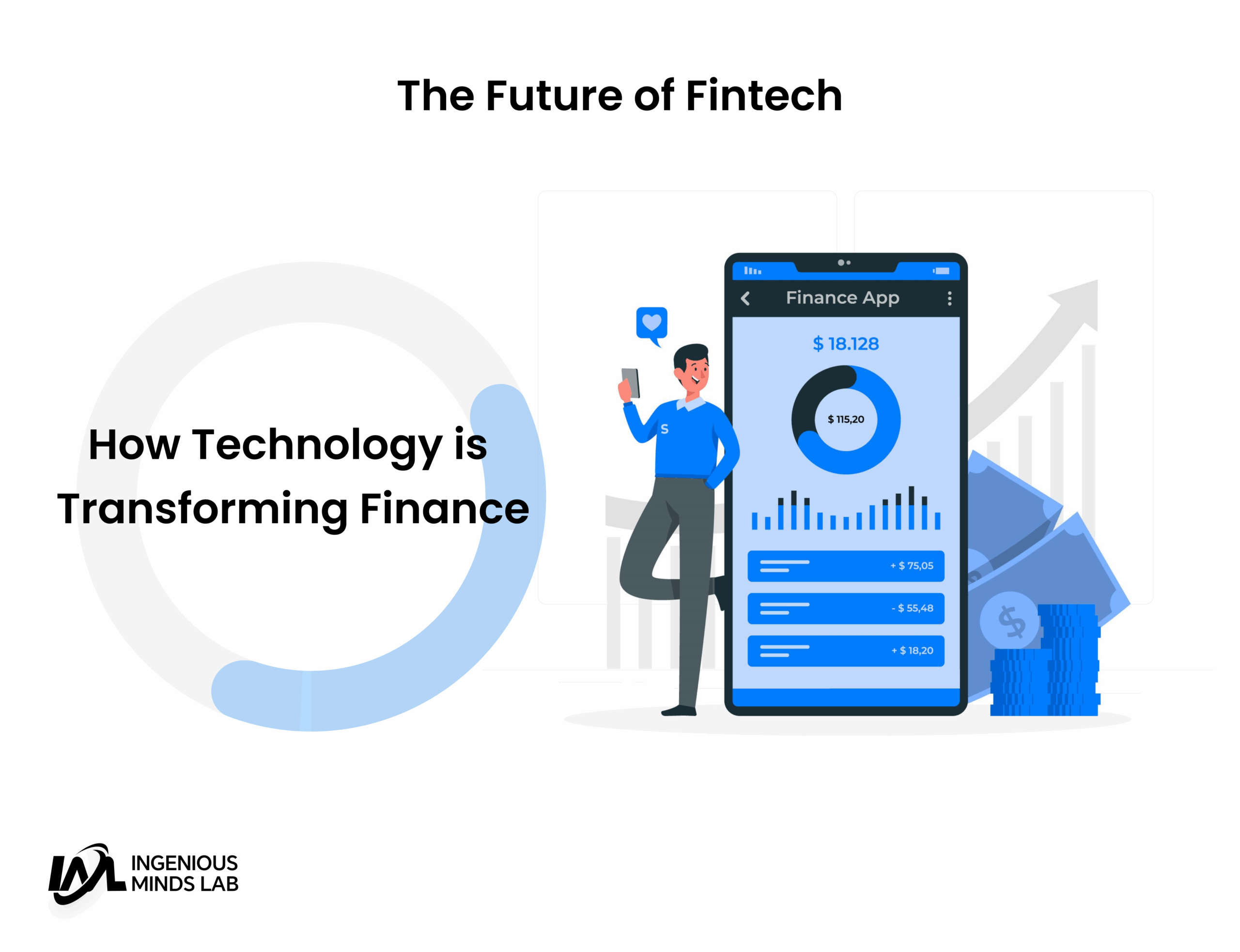Over the last decade, the financial sector has witnessed a revolution — and at the heart of it lies FinTech. Short for “financial technology,” FinTech has changed the way people save, invest, borrow, and transact. But what lies ahead? What does the future of FinTech look like in an era driven by AI, blockchain, and digital currency?
This blog dives into the current landscape, key trends, and emerging technologies that are shaping the future of FinTech. Whether you’re a tech-savvy investor, a startup founder, or just someone curious about digital finance, you’ll gain valuable insight into how this fast-evolving space will impact your life.
1. What Is FinTech and Why It Matters
FinTech refers to the use of technology to enhance or automate financial services. It encompasses a wide range of innovations including:
Mobile banking apps
Digital wallets (e.g., Google Pay, Apple Pay)
Robo-advisors for investments
Peer-to-peer lending platforms
Blockchain and cryptocurrencies
These tools have made finance more accessible, affordable, and personalized. And the future of FinTech promises even more disruption — for the better.
2. Current State of the FinTech Industry
As of 2025, the FinTech industry is booming:
The global FinTech market is projected to reach over $300 billion by 2030.
Over 70% of consumers worldwide use at least one FinTech service.
Neobanks and digital-only financial institutions are gaining trust at scale.
Yet, this is just the beginning. The future of FinTech will radically redefine how we view money, security, and financial freedom.
3. Key Trends Shaping the Future of FinTech
The future of FinTech is being shaped by several powerful trends and innovations.
a. Embedded Finance
One of the most significant trends is embedded finance — the integration of financial services into non-financial platforms. For example, e-commerce platforms offering “buy now, pay later” (BNPL) options or ride-sharing apps allowing instant payments.
In the future of FinTech, every app could offer some kind of financial service, making banking invisible yet omnipresent.
b. Decentralized Finance (DeFi)
DeFi uses blockchain to create open, permissionless, and transparent financial services without intermediaries. It allows anyone with an internet connection to lend, borrow, and trade crypto assets.
This peer-to-peer model challenges traditional banking and is a cornerstone of the future of FinTech.
c. AI and Machine Learning in Finance
AI is transforming how financial institutions assess risk, detect fraud, and personalize services. Chatbots offer real-time support, while algorithms power robo-advisors that manage investments.
The future of FinTech will rely heavily on AI for decision-making and customer engagement.
d. Financial Inclusion
The future of FinTech isn’t just about high-tech cities — it’s also about rural areas and underserved populations. Mobile banking and microloans are opening doors for the unbanked, helping drive global financial equality.
4. The Role of Blockchain in the Future of FinTech
Blockchain isn’t just about Bitcoin — it’s a foundational technology for secure, transparent, and tamper-proof transactions.
In the future of FinTech, blockchain will:
Enable real-time international money transfers
Reduce fraud in transactions
Streamline compliance and auditing processes
Power decentralized ID verification
Governments and central banks are also exploring Central Bank Digital Currencies (CBDCs) to bring blockchain efficiency to national economies.
5. Opportunities Created by the Future of FinTech
The future of FinTech brings massive opportunities for entrepreneurs, investors, and everyday users.
a. New Business Models
Startups are creating everything from AI-powered budgeting tools to decentralized credit scoring systems. The FinTech landscape rewards creativity and speed.
b. Smarter Investment Tools
Platforms like Robinhood, Groww, and Zerodha have already simplified stock trading. The future of FinTech will offer predictive insights, automated portfolios, and AI-driven strategies accessible to everyday investors.
c. Open Banking
Open Banking regulations allow third-party developers to build apps around financial institutions. This encourages innovation and gives consumers more control over their data.
In the future of FinTech, open banking will power personalized financial ecosystems for individuals and businesses alike.
6. Challenges Facing the Future of FinTech
Despite the potential, there are significant hurdles on the road to the future of FinTech.
a. Data Privacy and Security
With more data comes greater risk. FinTech platforms must guard against data breaches, cyberattacks, and identity theft. Building secure, transparent systems is non-negotiable.
b. Regulatory Uncertainty
As FinTech grows rapidly, regulations struggle to keep up. Different countries have different laws on crypto, lending, and digital banking. Harmonizing global regulations will be crucial for the future of FinTech to thrive safely.
c. Trust Issues
Users must trust that FinTech solutions will handle their money responsibly. One major breach or failure can damage public confidence. The future of FinTech depends heavily on earning and maintaining user trust.
7. The Human Element in FinTech
Technology is just one side of the coin. Human behavior, psychology, and financial literacy also shape the future of FinTech.
a. Financial Education
As services get more complex, users need the knowledge to make informed choices. FinTech platforms are increasingly integrating education modules to bridge this gap.
b. Behavioral Finance
Understanding human biases — like overspending or risk aversion — helps FinTech companies build better, safer products. The future of FinTech lies in combining tech with psychology.
8. What Consumers Can Expect
As the future of FinTech unfolds, here’s what you, as a consumer, can expect:
More control: Manage all your finances from a single app
Faster services: Instant approvals, real-time payments
Lower fees: Thanks to automation and peer-to-peer systems
Better access: Services tailored for freelancers, gig workers, and micro-businesses
Conclusion: Embracing the Future of FinTech
The future of FinTech is not just about cool apps or cryptocurrency. It’s about reshaping the global financial system to be faster, fairer, and more user-focused.
From embedded finance and AI-driven insights to blockchain and digital wallets, the possibilities are vast — and we’re only scratching the surface. But with these opportunities come responsibilities: data ethics, cybersecurity, and regulatory collaboration must evolve just as quickly.
As individuals and businesses prepare for what’s next, one thing is clear: the future of FinTech will impact everyone. Whether you adopt it as a user, build on it as a developer, or regulate it as a policymaker — the future is already here, and it’s powered by FinTech.

